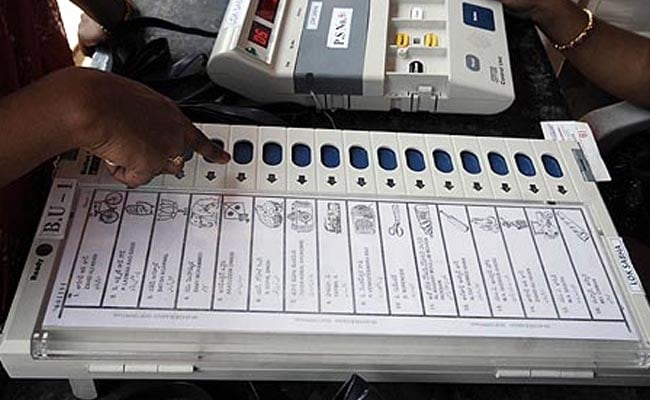
According to a clause in the Insolvency and Bankruptcy Code, 2015, the bankrupt would stand disqualified from being appointed or acting as a public servant or being elected to any public office. (Representational Image)
New Delhi:
A bankrupt person would stand automatically disqualified from becoming a lawmaker once the new legislation that looks to slash the time it takes to wind up a dying company or recover dues from a defaulter is enacted.
According to a clause in the Insolvency and Bankruptcy Code, 2015, the bankrupt would stand disqualified from being appointed or acting as a public servant or being elected to any public office from the date of commencement of proceedings.
The draft legislation provides for disqualification unless exempted by the Adjudicating Authority.
But a 30-member Joint Committee of Parliament, headed by BJP's Bhupender Yadav, has recommended not giving "discretion to the Adjudicating Authority to exempt the bankrupt from disqualifications".
Finance Ministry officials said the government has accepted all the changes suggested by the Joint Committee, including on disqualification of the bankrupt.
The Code defines a bankrupt as "a debtor who has been adjudged as bankrupt by a bankruptcy order under section 126; or each of the partners of a firm where a bankruptcy order under section 126 has been made against a firm."
Once declared bankrupt, the person would stand automatically disqualified from being appointed to or acting as a trustee or representative of any trust, estate or settlement. He would also be disqualified from being elected or acting and voting as a member of any local authority.
The bankrupt cannot also serve as a director of any company.
Under the existing provisions, individuals can go to jail for failing to repay just Rs 500. And to claim insolvency protection, companies need to wait until at least half of their value is wiped out.
The Code is expected to be taken up for consideration and passage in the ongoing session of Parliament, which ends on May 13.
The committee, which submitted report to Parliament on April 28, has suggested reduction in time window offered under different clauses to expedite the process.
The panel said that in the case of insolvency, interest of workers should be fully protected and they should be given dues for 24 months as against 12 months proposed in the Bill.
It also suggested that the time for filing an appeal in the Supreme Court against the order of the National Company Law Tribunal (NCLT) should be brought down to 45 days from the proposed 60 days. It also called for a shorter timeline reduced in a host of other clauses proposed in the Bill, which was tabled in the Lok Sabha in December last year.
According to a clause in the Insolvency and Bankruptcy Code, 2015, the bankrupt would stand disqualified from being appointed or acting as a public servant or being elected to any public office from the date of commencement of proceedings.
The draft legislation provides for disqualification unless exempted by the Adjudicating Authority.
But a 30-member Joint Committee of Parliament, headed by BJP's Bhupender Yadav, has recommended not giving "discretion to the Adjudicating Authority to exempt the bankrupt from disqualifications".
Finance Ministry officials said the government has accepted all the changes suggested by the Joint Committee, including on disqualification of the bankrupt.
The Code defines a bankrupt as "a debtor who has been adjudged as bankrupt by a bankruptcy order under section 126; or each of the partners of a firm where a bankruptcy order under section 126 has been made against a firm."
Once declared bankrupt, the person would stand automatically disqualified from being appointed to or acting as a trustee or representative of any trust, estate or settlement. He would also be disqualified from being elected or acting and voting as a member of any local authority.
The bankrupt cannot also serve as a director of any company.
Under the existing provisions, individuals can go to jail for failing to repay just Rs 500. And to claim insolvency protection, companies need to wait until at least half of their value is wiped out.
The Code is expected to be taken up for consideration and passage in the ongoing session of Parliament, which ends on May 13.
The committee, which submitted report to Parliament on April 28, has suggested reduction in time window offered under different clauses to expedite the process.
The panel said that in the case of insolvency, interest of workers should be fully protected and they should be given dues for 24 months as against 12 months proposed in the Bill.
It also suggested that the time for filing an appeal in the Supreme Court against the order of the National Company Law Tribunal (NCLT) should be brought down to 45 days from the proposed 60 days. It also called for a shorter timeline reduced in a host of other clauses proposed in the Bill, which was tabled in the Lok Sabha in December last year.
Track Latest News Live on NDTV.com and get news updates from India and around the world

